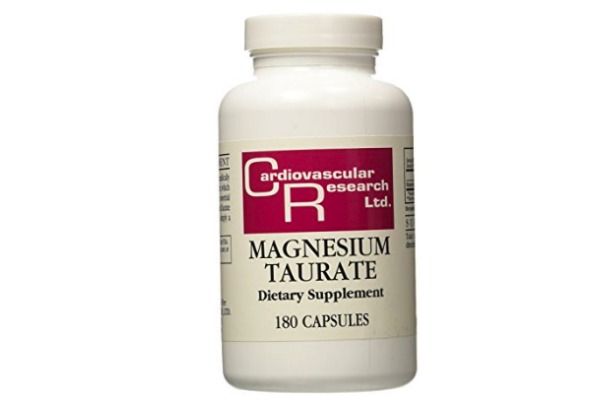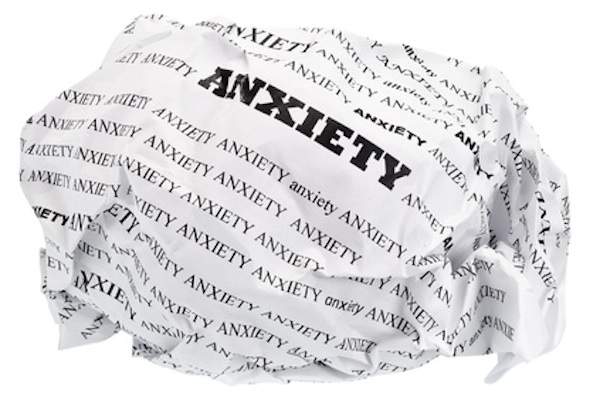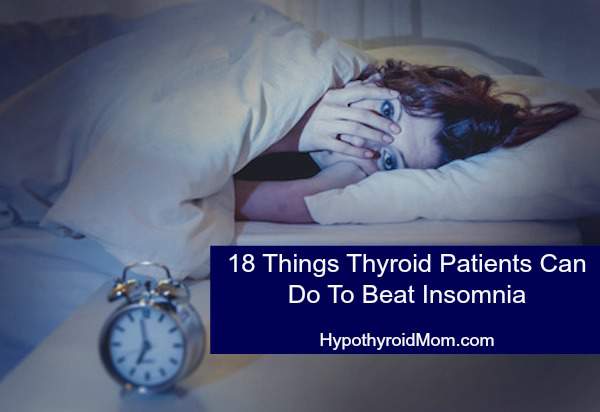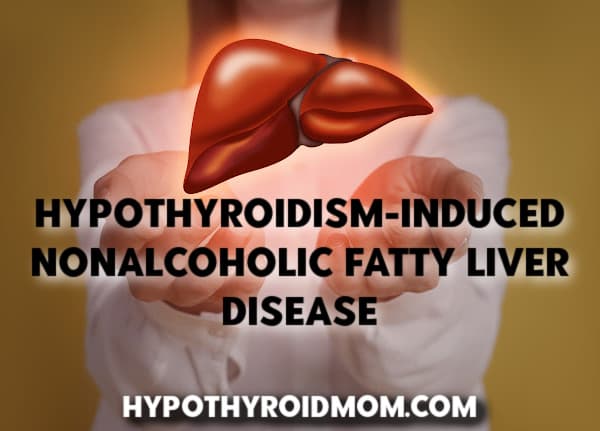
I first saw one of Dr. Sanjay Gupta’s YouTube videos on heart health and I was hooked. Dr. Gupta is a cardiologist in York, England. He explains how important magnesium is for everyone to maintain good heart health.
Written by Sanjay Gupta, MD
I want to talk today about magnesium and why it is so very good for us and yet we take in so little of it. I think that part of the reason there is so much illness at the moment has something to do with magnesium deficiency.
It certainly changed my cardiology practice in a big way. Pretty well everyone I know now takes magnesium and it’s not uncommon for me to get at least one or two people every single day come to me and say, “Look. You know that magnesium you recommended. It’s really good. It’s made a real difference to my life.”
Magnesium has helped people in a big way. It’s not just with regards to ectopic heartbeats, which I talk about a lot in my YouTube videos, but generally people have felt better.
Why is magnesium so good for the heart?
The first thing to say is that ultimately the majority of the problems that arise with regards to health are based around something called inflammation. Inflammation is when the body starts reacting to external influences and because it is reacting over a number of years causes long-term changes within the body. Ultimately the result is that it is harder for the heart to get blood around the body.
The big problem is that if you have long-term inflammation you will get development of hardening of the arteries and blood doesn’t get where it needs to as easily. As time progresses blood gets there less easily and less easily and eventually areas of the heart, areas of the brain, areas of various parts of the body start lacking blood.
This is why people develop high blood pressure because the heart has to work much harder to generate higher pressure to try and get blood through to the vital organs.
Anything that reduces inflammation is a good thing. Anything that improves blood flow to the vital organs is a good thing. Anything that thins the blood ever so slightly to improve the flow of blood or stops the blood from thickening up so that it flows more smoothly is a good thing. And magnesium has all these properties.
A little bit about magnesium
Magnesium is both a mineral and an electrolyte. It is the fourth most abundant mineral in the body. It is necessary for electrical activity in the heart and the brain. It is a cofactor in more than 300 reactions within the body.
The recommended daily allowance is about 400 to 420 milligrams for men and 310 to 360 milligrams for women. Our daily intake is actually a lot less than that. The majority of people take in between 240 to 370 milligrams at most.
75% of people take in less magnesium than they should.
Of the magnesium we take into our bodies, 30 to 40% is absorbed within the gut. Some of it is excreted through the kidneys but the kidneys reabsorb it.
Magnesium is very interesting because only 1 or 2% is available in the blood. 67% is in the bone and 31% is around about in the cells within the body. So when you measure it in the blood, you’re only measuring a very tiny proportion of what is actually around.
Why are we magnesium deficient?
The majority of us are all magnesium deficient. The reason is we’re firstly not taking in enough and the reason for that is there are modern farming methods that deplete the magnesium in our soil and there is processing of food which depletes magnesium. The magnesium that we take in from our food is a lot less because of what’s been done to the food.
Then when we take the magnesium in, we don’t absorb it from our stomachs as well. Part of the reason for this is a lot of us are on proton-pump inhibitors, PPIs, these are tablets people take because they have indigestion and acid reflux. Why do we have reflux? Because of the bad food that we are being fed. These PPIs inhibit the production of acid in our stomachs but actually acid is really necessary. We were born to have acid in our stomachs. That’s how we digest things. And if you block the secretion of acid then we are going to absorb less of what we should be absorbing. It is well proven that PPIs reduce the amount of magnesium within the body because you are not absorbing as much. Similarly, carbonated beverages will also reduce the amount of absorption of magnesium in our bodies.
Then whatever magnesium we are absorbing, we are using up too much. We are using a lot more magnesium nowadays than we did several hundred years ago. Why is that? Because stress uses up magnesium, and we’re all stressed. Lack of sleep uses up magnesium, and we all get too little sleep. Because sugar intake uses up magnesium, and we’re all taking in too much sugar.
And then also, we are excreting larger amounts of magnesium. Things like coffee, tea, diuretics reduce the absorption of magnesium.
We’re being hit from so many different angles that it’s not surprising that we are all deficient in magnesium.
What are the signs of magnesium deficiency?
Many people are tired and magnesium deficiency can cause tiredness.
Many people don’t sleep particularly well and magnesium deficiency can cause insomnia.
Many people have constipation or bowel disturbances and magnesium deficiency can cause that.
Many people feel anxious and get depressed and magnesium deficiency has been associated to both.
Many people complain of heart fluttering or heart palpitations and magnesium deficiency can certainly do that.
Many people develop hardening of the arteries and high blood pressure and magnesium deficiency can do that.
Many people have diabetes and taking in more magnesium is better for diabetic control.
Many people have osteoporosis and magnesium deficiency can cause that too.
These signs may not be immediately obvious but when you look at it over a number of years you will find these things have crept up on you without you realizing it.
It could be something as easy as the fact that you haven’t been getting as much magnesium as you should over the last 20 years.
How do you measure magnesium deficiency?
The blood test is pretty much useless because I told you earlier you’re only really measuring one or two percent of what’s your total magnesium count. I wouldn’t rely on the blood test. The only time that test may be useful is if you are very deficient and the blood test confirms it. However just because your blood test shows your magnesium levels are okay that doesn’t mean that they are.
A better way to measure magnesium is to measure the content of magnesium in the blood cells, measuring the intracellular content, or measuring how much magnesium you are excreting through the urine. You can get red cell magnesium content or urinary magnesium level done, but these tests are not easy to get and not easily available. Some doctors will say, “Oh your magnesium levels are fine based on your blood test.” I wouldn’t rely on the blood test.
Why haven’t I been told about magnesium?
One, it is difficult to measure.
Two, there is not much big research being done on it because no one really profits from it. People are interested in doing big research on new wonderful expensive drugs. Most of the research is driven by pharmaceutical companies and, therefore, no one really looks at simple things like this.
However if you go online to PubMed you’ll find tons of small studies that show the benefits of magnesium. It does have a small anticoagulant effect. It does have an anti-inflammatory effect. It is also a vasodilator (opens up the blood vessels allowing more blood to get to the vital organs, reducing pressure on the heart) which is really good.
How do you get more magnesium?
The first thing to say is that it is very important to be more responsible about what you’re eating. Try to get a better intake of magnesium naturally if you can. Eat more magnesium-rich foods like almonds, spinach, cashew nuts, peanuts, and avocados. You want to be sure they have been grown in good organic soil that has not been magnesium-depleted.
You can apply magnesium oil to your skin. There are ionic magnesium drops available. You can soak in epsom bath salts that contain magnesium. You can also take magnesium oral supplementation every day available in health food stores and vitamin shops.
Can it be harmful to supplement with magnesium?
A lot of people write to me and ask whether magnesium can be harmful? Truthfully it usually is not harmful, not unless you are overdosing. If you are taking a ton of magnesium, like 5,000 milligrams a day let’s say, whereas you usually really only need about 400 milligrams a day. If you don’t tolerate it well, you can get diarrhea and cramping. Normally if you take in more magnesium than needed, the kidneys will just excrete it but if you have kidney failure or if you have kidney problems then I recommend that you speak to your kidney specialist before you take magnesium.
What kind of magnesium tablets do cause the diarrhea and cramping more? Magnesium carbonate, magnesium gluconate, magnesium chloride, and magnesium oxide tend to cause more diarrhea. However if you take things like magnesium glycinate then that’s a lot better.
It’s worth paying attention to your magnesium intake because you may find that just taking a little bit of magnesium will sort out a lot of your problems and you will feel better. So try it and let me know how you get on.
I often get asked which magnesium supplement I recommend well this is it: Cardiovascular Research Magnesium Taurate
My name is Sanjay Gupta. I am really, really grateful to you for reading this article at Hypothyroid Mom and for watching my videos on YouTube. I am overwhelmed with the kind words you write. Please keep them coming. I would be grateful if you would share this article. One of the pleasures for me is to come online and see comments from people. It gives meaning to my life.
About Sanjay Gupta, MD
Dr. Sanjay Gupta is a consultant cardiologist practicing at at the Nuffield Hospital in York, England. His research has been published in a number of publications including the Journal of Cardiology, Annals of Clinical Biochemistry, Circulation, European Heart Journal, and Radiology. You can find Dr. Gupta on his website York Cardiology [dot] co [dot] uk as well as his two YouTube channels York Cardiology and More Than Just Medicine.
READ NEXT: Hypothyroidism & Heart Disease: The Research








I’ve suffered from irregular heartbeats and a sporadic racing heartbeats for years now. At night when sleeping it would feel like my heart would beat out of my chest. I started taking this and it was almost instant that is stopped. Unbelievable. My doctor just wants to throw meds my way when a natural supplement wa all I needed. I’m so thankful I can sleep now.
My husband has atrial fibrillation. He is waiting to have ablation surgery. He doesn’t have a lot of options because his hearbeat is slow normally. Would the magnesium help him?
Thanks so much!
Have your husband ask his doctor and cardiologist about magnesium to see if it would be recommended in his case. Given that he is waiting on surgery it would be important to ask his doctor before starting any new supplements. Wishing him all the best for his surgery. Regards, Dana Trentini (Hypothyroid Mom)
Also i ordered my mag glycinate in bulk and make my own capsules, save alot of money that way! Typo on my name.
It is Gwynna
I took 1G IM of magnesium sulfate yesterday evening because of extreme muscle cramps in hamstring muscle and I’ve never slept better. I do not have leg cramps, my resting hr is 70bpm (usually 120bpm or higher), and I have Lupus. The swelling in my hands I usually wake with is non existent-in fact I think they look to skinny ( not used to them being tiny). I’m a nurse, under lots of stress, diagnosed with generalized anxiety but no more racing thoughts in my head. Magnesium is amazing. I will keep taking it. Imagine if we could cure Lupus with magnesium. Or one of the 30 diagnosis I’ve been given? We can change the world!
Thank you for posting this article, sometimes even medical professionals need a refresher on what’s good for us.
Speaking of the importance of Magnesium, also very important is unrefined salt and iodine. Holistic dr
David Brownstein has some excellent info on this.
I just recently started on magnesium chloride, (doing the iodine protocol)
but decided to add magnesium glycinate to my regimen. This is the third day and my sleep is a little better! I have severe insomnia. I have gotten some relief for my Hashimotos and adrenal fatigue related anxiety from some of my other supplements, but this Mag. Glycinate is helping it too! I am hoping it lowers my high heart rate and palps.
Does magnesium supplements cause first degree heart block?
There is no real evidence that Magnesium Oxide is not absorbed well. There is more magnesium in oxide tablet than in taurate so it get more in to the blood.
Hi I have eptopic heartbeats and my consultant said to take magnesium oxide 2000mg a day, was wondering how long you would advise I take these for currently they have said 6 months, I had a blood test after 3 months and it said my levels were fine, are there any long term side effects to taking this high dose ?
Why Magnesium Taurate instead of Glycinate for ectopics or Afib?
I was diagnosed with Paroxysmal AF 3years ago. I had a very emotional relationship breakup and that is when this first reared its ugly head! I was put on Bisoprolol increasing to 5mg but it affected my eyesight and produced a very frightening strong sinus node pause on a frequent basis. I asked to be weaned off after a couple of months as I found that feeling terrifying almost as if the meds had exacerbated me being aware of the pauses. I felt a lot better off the meds. My heart scan showed all ok; leaky mitral valve but nothing major. When I moved areas the new doctor would not let me out of the surgery without discussing my previous heart diagnosis as she could see I had not been on any meds. She put me on 1.25 mg Bisoprolol this was 2 years ago and things have not been too bad apart from a week or so ago when I was awoken with RHR of 103!. I have had heart monitors (3 days) and scans etc ie last year. No further strong SNP but I do still get it. The last cardiologist said from all the tests I have had there is no evidence of AF. That said the report does show heart irregularities and sinus node pause but just under the 3 second criteria and I have never fainted with that. I have tried not to let this all get the better of me. I am now 66 and was, until a few weeks ago, still working in a legal environment (quite stressful) 4 days a week. I now work 3 days a week there but still have a lot of responsibility. In the past two years my weight has gone up drastically. I have always been a size 10/12. I am now a 16 going up! I am told it is not the meds. Seriously I would just like my life back and to feel normal. It doesn’t help as last summer I was diagnosed with spinal degeneration complicated by cord compression. That is another issue. If there was anything that I could take magnesium or otherwise that would get me off this drug then I am sure I would benefit from it all round. Unfortunately one GP I saw at my surgery who has now retired told me to go run up a hill when I explained to him that despite the meds I cant exercise or dance in any way like i used to because my heart goes haywire. I asked for a treadmill test but got told no because I wasnt suffering any chest pains.
Hi Sue, I have to say to you please find a new doctor who will help you come off Bisoprolol. My husband was prescribed this for high blood pressure and he had a really difficult time on it. His weight totally ballooned, like he was going to pop, he also couldn’t exercise while taking this drug, he had to stop walking/weight training as he constantly felt breathless and light headed as if he was going to faint. This left him very frustrated and depressed trying to loose the weight. we have had a long battle with blood pressure meds, but now after lots of research and a very long journey from ill health my husband is off the BP meds, changed his diet (meds damage your gut lining also) and using Magnesium as this article goes into with great success. I wish you good luck and health also.
Ive had heart palpitations off and on for years but this last year they got pretty regular and at times my heart would race it seems to happen more when it’s my time of the month. My doc put me on heart monitors, did blood tests and put me on clonazipam.
I have had anxiety for a year now from a sudden loss, horrible dreams and sleep pattern, lay awake for hours with anxiety at night.
I’ve been taking magnesium clycinate for 4 weeks 200mg before bed every night and it made a difference from day 1 my anxiety is way better, my heart palpitations are so much better I’ve felt palpitations twice but they were tiny and didn’t bother me (huge difference) but the biggest change for me is my sleep I’m getting the best sleep of my life. I’m so thankful this is a night and day difference I feel free and stress free not scared I’m gona die at a young age because no one could tell me why I would get dizzy and my heart would freak out. If your dealing with this please give magnesium a shot.
👍👍💕😂
This was a huge read for me. My 15 year old and you have a lot in common. I am going to try Magnesium. Thanks!
Thank u for sharing
Thanks for this message of hope. I have been basically suffering the same as you (Racing heart & bad insomnia) due to prolonged stress, I think, and have been using Magnesium oil for years now, but I don’t think it’s enough especially since it’s got colder and I haven’t wanted to apply it so often, plus I get rashes from it! So, I have just ordered some Magnesium Glycinate tablets, which I am excited to start taking to hopefully get some relief with my heart, and to be able to sleep again!
Unfortunately because of Christmas post etc., it’s going to take a while to get here though, so I’m going to buy some Magnesium Chloride tablets today to keep me going until I get the Glycinate!
Thanks so much for this info. Can you tell me if the mg supplement CALM sufficient enough to take. I’ve been taking this every night. It puts me to sleep. Thank you
Hi I have question, can I take low doss Statin prescribed my doctor can I take together at the time of going to bed.
I mean Magnesium + Statin
I just wanted to say thank you for so much informative info. Most don’t really give any vital info just a bunch of nonsense trying to sell a product. I have Hashimoto’s with a goiter and nodules for about 13 years now I take 75 mcg Synthroid
Thank you Susan. My hope is that Hypothyroid Mom is helpful to my readers. Happy to have you here.
Go to YouTube and watch his videos on Magnesium deficiency (there are 3 currently). The transcript above is basically one of the videos. He has done lots of videos per se but those are obviously the most relevant.
He’s covered some of the questions asked here.
He only recommended Taurate originally as that was the preparation he had used previously and found it worked well but he says you can use any preparation. One to avoid is Oxide which is not readily absorbed and is the cheapest. The Taurate recommended can be a bit expensive hence advising other preparations were fine.
Some people cannot tolerate larger amounts of Magnesium (later on in the digestion!) so the one which is often the best tolerated is the Glycinate.
I’ve been using Taurate for 4 days now and just went up to 250mg a day today to see. It’s definitely helping but I think it takes a month to get up the to required levels and stabilise!
I have 3 af episodes before I did my own research and started taking this exact magnesium taurare fir 2 years now. … not a single af episode. Told my cardiologist and he didn’t seemed to think much of it but I think it is life changing and I will never go without . Hope this helps someone.
Thanks for sharing your experience, Kristi. What may sound alternative like a magnesium supplement can be a real game changer for people. That is why I get excited every time I post a new article at Hypothyroid Mom that perhaps someone out there will read it and find something in it that is useful. All the best, Dana Trentini (aka Hypothyroid Mom)
I took my first Mag Taurate 200mg last night for rapid hearts beats (at night) and was up all night because IT actually started the rapid heart beats! I was so disappointed because people with AF and other heart issues like mine get real relief from this form of Magnesium. I read countless praises before I bought them.
I have taken chelated Mag Glycinate daily for 8 years in difference doses. I am taking only 200mg now in the AM. But sometimes after taking them, my heartbeats start to rapidly beat for a couple of hours, not always.
I was on a very low Beta Blocker and came off in Nov 2021 and previously took more Magnesium Glycinate 400 mg a day but it was too much when I got off the BB. I was fine until the middle of Jan when I developed these rapid heart beats at night. Now they show up every other night, two in a row or even in the daytime and won’t allow me to sleep.
I upped potassium foods 3,000 mg a day and never had a high salt diet. I am not overweight. I walk 3 miles a day and no alcohol.
It’s is a mystery what is causing rapid heart beats. If I tell my cardiologist, I know he will prescribe Beta Blockers. So, many people rave about Mag Taurate, and I wish I could have had a better time with it. I wish most cardi doctors knew more about Magnesium and wanted to work with patients on this, instead of grabbing the Rx pad. Especially, patients who have no factors, are not overweight, who exercise every day, don’t drink, not depressed, not stressed (except for rapid heart beats), instead of putting us on Rx.
I’ve had many test for this a couple of years ago when I got the same rapid heart beats at night for months, after a food poisoning event, all of them showed nothing was wrong with my heart. It’s bizarre. They stopped when I started taking Ubiquinol but now if I take it, believe it or not, they started causing it and the rapid heart beats stopped when I stopped taking it. Not stopped entirely though. They always return, even when you think you’ve got a handle on them.
What about magnesium chelate? Thanks
Hi, retired Ob/Gyn and I had noticed that “restless Leg syndrome was a common complaint?! Noticed also when I gave mg for toxemia that complaint faded.,The advertisers of “ leg cramps” use a leg cream containing Mg however I was completely blown away that leg cramps disappeared with oral mg. Why oh why wouldn’t you take it orally at 400mg /day! Answer is they make more money selling creams containing mg that prescribing oral route! God Bless.
Hi
Sprays and creams are taken as not everyone can tolerate MG taken orally .
In my experience, there is less laxative effect when I use a magnesium spray. I’m about to try out Life Extension’s Magnesium, called “Neuro-Mag L-Threonate.” It’s a powder (add it to water or other liquid), so we’ll see. The threonate is to help it to be absorbed by the nervous system. I’m hoping to be able to give it to my parents (my mom’s on a diuretic, lasix, which not only depletes potassium but also magnesium), without causing the laxative issue. I’ve used the oil on them but it tends to dry out their elderly skin.
I have had heart palpitations and irregular heartbeat for over 20 years. I also have anxiety and very irritable. I started taking magnesium citrate about three weeks ago, I can’t believe the difference already. I feel calmer and no heart irregularities! I can’t believe I have spent so much time at doctors offices, wearing heart monitors, going to the emergency room and thinking I was going to die of a heart attack any minute, because the palpitations could get so bad. And all I needed was a VITAMIN! I hope this continues. It citrate okay or should I be taking another kind for the palpitations? Also very irregular all the time nothing has changed there. Thank you
How many milligrams of Magnesium Citrate are you taking? I am going to start 250mg tomorrow and not sure if that is a sufficient amount or not. Also do you take it in the morning, or night, or ? Thanks
I have never been told this, by any doctor
To Dr. Gupta,
You have done a service to the American people by
your Youtube video by making them aware of magnesium
deficiency. We have known this for decades (only 40% of what we need).
Nobody has ever in the medical profession ever stressed
this the way you have. God bless you. You have probably
done more good than you can ever realize.
tds , MA, MS, PharmD.
Love my magnesium! I have had 2 kids and during both pregnancies I started getting uncomfortable heart palpitations. With my first I was put on a low dose statin which not only didn’t really work, I later found out was actually not approved for pregnancy. Thankfully the second time around, I found magnesium instead. It worked, was safe for me and baby and helped me deal with so many problems from controlling my palpitations to restless legs to middle of the night cramps to regularity to calmness when my preggo brain decided to get anxious… such a great tool. So glad to see cardiologists really starting to embrace this basic tool for actual healing!
I have been on magnesium for over a year….read Dr. Dennis Goodmans ( cardiologist) and Dr. Carolyn Dean. ND books on magnesium. .believe me I tried all the magnesiums till I found a pico measurement of liquid chloride . No more pacing tiger in my restless mind. This is the calmest I have been in 20 years. It helps to tone down the sympathetic nervous system. I can sit with myself and be still and calm….. when some one says “May peace be upon you” What they are REALLY saying…” May you be magnesium saturated!”
I never knew what was in my mind, but I can now picture restless tigers. Can you explain what a pico measurement is and is liquid chloride a magnesium?
She means pico-ionic magnesium chloride liquid in pre-measured doses.
The magnesium taurate recommended by Dr. Gupta breaks the blood brain barrier (that’s a good thing.) Law students use it when studying and before taking exams. I once took four capsules before an exam and I was “high” for 20 minutes. Now I take lower doses.
little confused here. He suggests that magnesium glycinate is better, but recommends magnesium taurate, which he doesn’t mention in the article. Why taurate? Thanks
I think he was trying to say that glycinate is a better form than oxide. But for heart health taurate is the best.
Good, better, best.
Really depends on what your goals are, some say magnesium threonate is good for brain health.
Can I take magnesium if I’m taking Pradaxa. ?
ReMag by Dr Carolyn Dean is a carefully measured magnesium supplement.
yes you certainly can i use pradaxa and mhave no side effects so yes go for it i recommend it regards acer calm